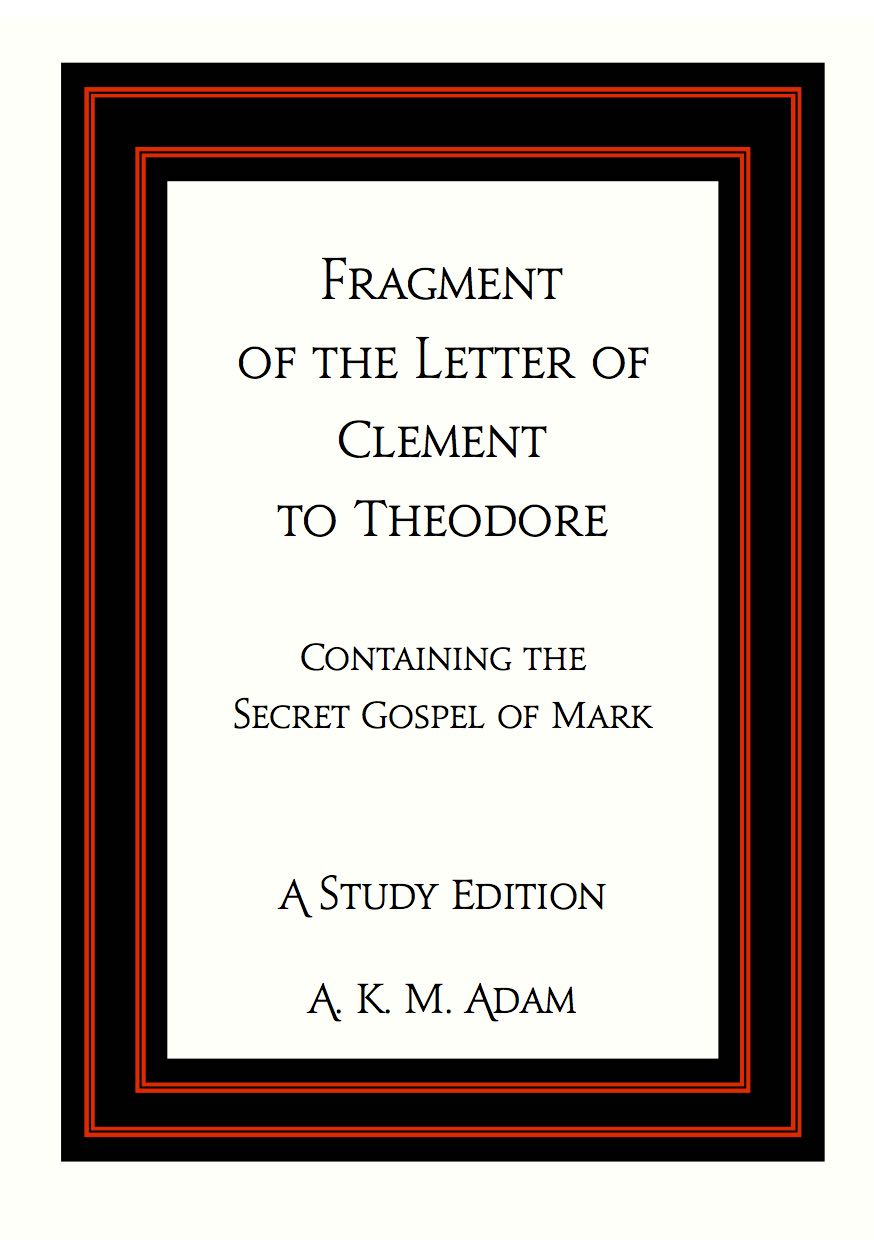… the Christian life is the kind of thing that makes the kings of the earth nervous — not because it encounters them with the force of arms, but because it testifies to a power that not even death can contain. (Kirk, 76)
With Chapter Four, Daniel Kirk’s Jesus Have I Loved turns to the ethical implications of the understanding of New Testament theology that he’s been tracing in the first three chapters. As in previous chapters, he describes Jesus first. The Jesus whom Kirk presents here called disciples to specific behaviour: following, teaching, healing, exorcising, proclaiming, cross-bearing, and so on. Although the Jesus of John’s Gospel puts great emphasis on ‘believing in me’ (‘believing in his name’, believing in the son’, ‘believing in the Son of Man’), even John portrays a Jesus who instructs his followers that whoever believes in him will do his works, and even greater works, and that they must love one another as Jesus loved them, so that ‘the love of a Christian community is none other than the continuing embodiment of the self-giving love of Jesus’ (Kirk, 79).
Kirk then shows the continuity of Paul’s ethical exhortation with Jesus’ teaching. While Paul doesn’t simply repeat what Jesus said, the development from Jesus to Paul involves their different settings relative to the overarching narrative that Kirk proposes. Jesus lived (according to the flesh) before the resurrection, and his teaching relative to death and resurrection remained obscure to the disciples. Since Paul can look back on the resurrection, he and his audiences can take account of the resurrection and trace its implications in a way that would have been unintelligible for Jesus. Nonetheless, the narrative Paul teaches, like the narrative that depicts Jesus’s own ministry, identifies the cross as the pivotal element in recognising God’s work and God’s will. Whereas for Jesus, discipleship entailed following him on the way of the cross, Paul takes discipleship as the vocation of ‘making [one’s] life a living narration of the story of the crucified Christ’ (80).
Kirk extends himself to disabuse readers of the notion that justification by faith is in any way antithetical to actually, you know, doing good things. This effort bespeaks a different ecclesiastical ecology from that which I’ve inhabited; I rarely, if ever, encounter someone who treats good behaviour as a threat to their pure sanctity. Much more common in my worlds is the ‘believer’ for whom believing, the right kind of believing, and concentrated correct believing constitute the epitome of adhering to Jesus. Kirk’s exhortation applies as well to the latter as to the former, though I wonder whether some believers might let themselves off the hook too easily on the grounds that they aren’t anti-works (just works-indifferent). In any case, Kirk draws on Paul’s repeated emphasis on ‘faith working’, on the ‘work of faith’, and God’s making it possible for us ‘to will and to work for his good pleasure’ — and of course, on Paul’s predictably forceful moral instruction. After these pages, a casual reader will find it difficult indeed to imagine how anyone could ever doubt that Paul wanted believers to live in particular ways.
Kirk wants not simply to argue that Christian believers should not be allergic to works, though; he wants to show how that working coheres with, and perpetuates, the gospel that Jesus proclaimed. The pivotal element that aligns Paul and Jesus, according to Kirk, is the power of God, greater than sin and death, that transforms the life of the believer. Transformed believers will readily accept the derision, rejection, abjection of their scornful neighbours; while not all would actually be crucified, the cruciform life of enduring abuse in order to bear witness to the power of resurrection life will apply to all. God, in the Spirit, can free believers from their imprisonment to mortality, to the earthly powers of success, fame, and acclaim — imprisonment to the temptation to secure for themselves control over the contingencies of life by triumphing over adversaries and circumstance. Contrariwise, Kirk reminds his readers that Paul’s strength was made perfect in weakness, in being rejected and punished and trashed.
Readers who take up Kirk’s exposition of Pauline theology (and Jesus’s theology) will endeavour in all things to make themselves transparent to the luminous power of the gospel. As people who have been in-corporated into the life of Jesus, sharers in the life of Christ, they will act in the world in ways congruent with their exemplar Jesus, as they were coached to by Jesus’s eminent interpreter, Paul. That way of life isn’t determined by rule-following (for no one will be justified by works of the law), but by that divine power made flesh in Christ, communicated to us by the Holy Spirit, that transforms our inclinations from death-fearing servitude to sin into life-embracing freedom for godly action in the world.
In all this, I applaud the trajectory of Kirk’s interpretation of Jesus and Paul (and particularly in Chapter Five, where Kirk treats the topic of inclusivity — but that’s not my chapter to discuss). I would argue with him on points of detail here and there, but these would be the sorts of argument that we might conduct convivially over a pint of Chip 71 or Cart Blanche, or perhaps one of Kirk’s own home brews. Kirk speaks from a vision informed by Hays and Gorman, adopting the trope of ‘discipleship as playing/improvising a role in the divine drama’ popularised by Wright (pioneered by Lash and Young, redeployed by Vanhoozer, and focussed into ethical principle by Wells), yet with a voice of his own. Kirk’s Jesus Have I Loved… exemplifies the best sort of New Testament theologising in current scholarship — richly grounded in (critical) appropriation of Scripture, remaining recognisably close to Scripture’s own words, arranged so as to reveal a persuasive greater coherence.
So compelling a depiction of Jesus’s and Paul’s narrative understanding of the gospel, though, inescapably raises weighty questions. Kirk devotes particular time to one in particular: how does a servant of the ‘upside-down’ gospel approach leading, or teaching, or decision-making? Kirk astutely points to the risk of performative contradiction for the teacher who persuasively lectures (or ‘writes’) about the self-denying humility of cruciformity — what if the book becomes a best-seller? What if the acclaim that accompanies an insightful ministry of scholarship impels all people to speak well of you? (And, conversely, how do we distinguish the disagreeable prophet from the just plain disagreeable person, the lowly leader from the crummy leader?) Kirk confesses to being haunted by Paul’s gospel as he lectures through 2 Corinthians, and one can readily sympathise with his plight — but is it too much to ask that he dwell a bit longer on how his readers might cultivate a spirit of humbleness that eschews the culturally-prominent markers of financial, occupational, and ‘reputational’ success?
Kirk also draws all threads of the theological narrative to their convergence at the cross; fair enough, for it would take a foolhardy critic to question the centrality of the cross for contemporary theology (especially in a chapter with a well-known epigraph from Dietrich Bonhoeffer). At the same time, since Jesus and Paul both draw so richly on the precedents and the sensibilities of the Old Testament, I’d have welcomed a stronger sense that the narratives in question don’t just begin at Matthew 1:1. To be clear, Kirk’s earlier chapters make strong narrative connections with the Old Testament — the point here is that dominical and Pauline narrative ethics draw strength from their continuity with the characters and teaching of the Old Testament, in a way that this chapter’s focus on the Old Testament as represented just by the abstract concept of ‘law’ or by the Ten Commandments short-changes. The narrative that Jesus inherits and passes along to his disciples (transformed, yet recognisably ‘the same’ in theologically important ways) is more deeply understood as it engages the broad swath of stories that precede Jesus’s advent. That additional depth and richness would well serve Kirk’s purposes in this chapter, if he invoked it.
Finally, Kirk’s focal emphasis on the cross also provoked me — perhaps counterproductively — to wonder. At the risk of a serious misstep, which I would earnestly recant if proven — Is the cross itself the central, defining characteristic of the paradigm that Kirk (and Gorman, and their numerous admirable forebears) identify? In this chapter, the cross sometimes seemed to figure more importantly than the imperishable vindication that followed it, a little as though the resurrection were an afterthought. Make no mistake: I’m not soft-pedalling the cross, but wondering how truly it captures the ‘and resurrection’ good news if we refer continually to ‘cruciformity’, ‘the cross’, and so on. My concern derives from having thought more and more recently that the relation of the good news of Jesus to the character of holiness, wisdom, and purity adumbrated in the Old Testament can be deflected by accenting the characteristics of suffering. The point of the good news in this regard, after all, is not that we should look forward to misery, or that we should seek out persecution, or that only someone who has been scarred by abuse can understand the gospel; rather, the point is that God’s power for life, for justice, for restoration and harmony, all are greater than the obstacles that sin and death set before them. This is actually a harder teaching for me than the centrality of the cross, because the former version of the cross can modulate into an abstraction, a figure, a generality — whereas the latter requires that I regard my own impending death as no more worrisome than a cold, requires me to regard my financial instability as relatively inconsequential in light of the depth of the riches of God’s glory. Does abstract-metaphorical invocation of ‘the cross’ sometimes serve, ironically, to screen from us the daunting prospect of actually living in the way that Kirk shows Paul to be teaching?
It takes a provocative thinker to push a reader as far as Kirk has pushed me, especially since I started the book so sympathetic to Kirk’s own vision. For such a vivid treatment of the true power of resurrection life, and the transformation in ourselves that it would call forth if only we could let it, Daniel Kirk should be (humbly) applauded. And now, I’m about ready for that pint.
(The foregoing is my contribution to the Jesus Have I Loved, But Paul? blog tour, organised on behalf of Daniel’s book by Baker Academic. Yesterday, the tour stopped at James McGrath’s place and Jamie Arpin-Ricci’s; the tour continues tomorrow with contributions from Tripp Fuller and Jim West.)


